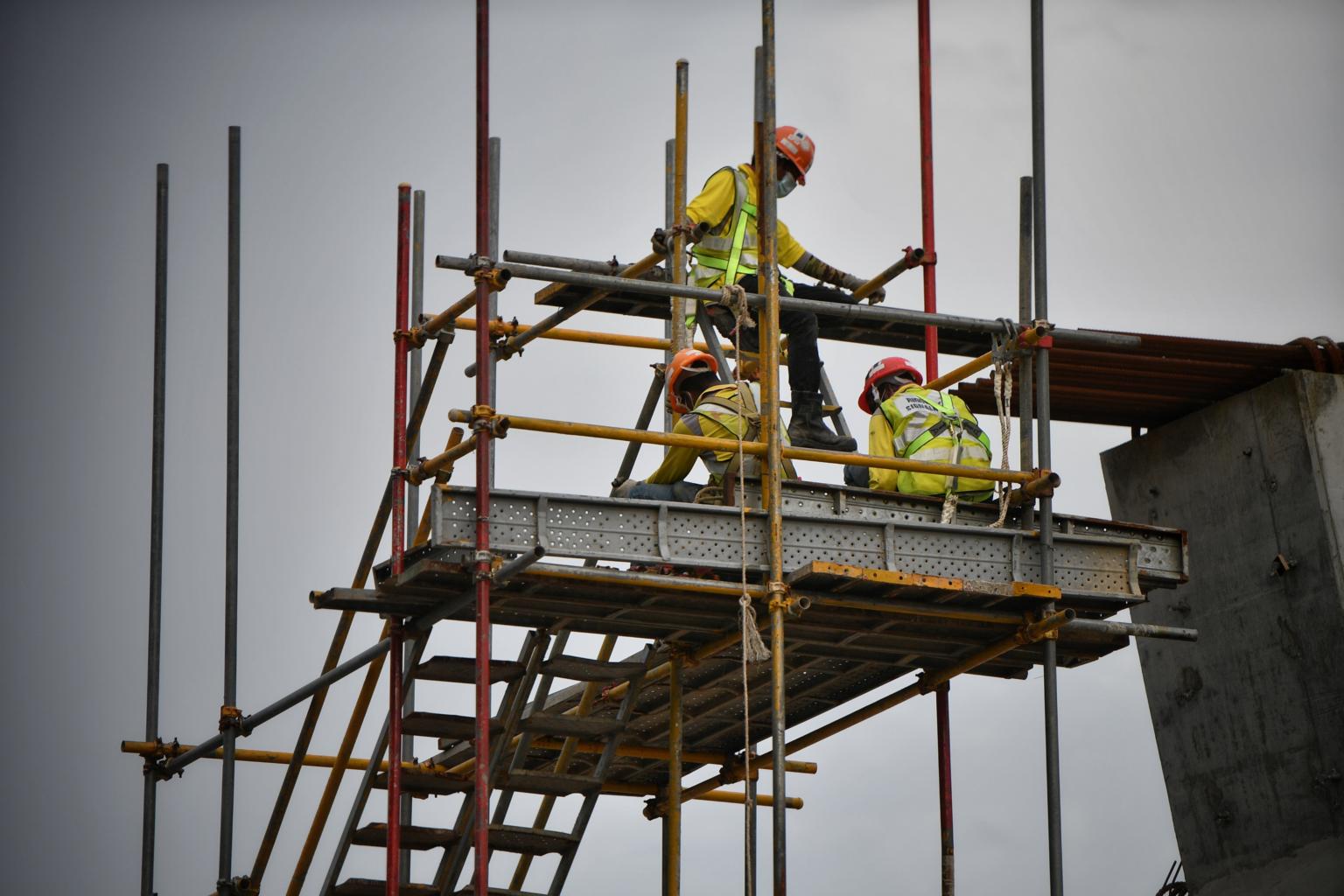Infrastructure investments can create jobs and boost Singapore economy, says Indranee Rajah
Sign up now: Get ST's newsletters delivered to your inbox

The construction sector has resumed since works were halted during the circuit breaker earlier this year.
ST PHOTO: ARIFFIN JAMAR
Follow topic:
SINGAPORE - As Asia recovers from the fallout of the Covid-19 pandemic, building and investing in infrastructure can help to create jobs and boost the economy, said Minister in the Prime Minister's Office Indranee Rajah.
Ms Indranee, who is also Second Minister for Finance and National Development, said Singapore sees infrastructure as a way to boost the economy, and while construction was halted during the circuit breaker earlier this year, it has resumed on projects like the North South Corridor and Thomson-East Coast MRT line.
"Infrastructure can be used to prime the economy, provided it's planned right and you have the relevant measures in place for safe distancing.
"In the short term, a lot of attention has to be paid to Covid-19... (but) investors are still looking for good-quality infrastructure investments."
She made the point during an online panel discussion on Friday (Nov 13) titled "Reigniting Asia's Infrastructure Plans: What are the priorities now?". It was organised by the Financial Times, a British newspaper.
The other panellists were Asian Infrastructure Investment Bank (AIIB) chief economist Erik Berglöf, and pension fund AustralianSuper deputy CEO and chief investment officer Mark Delaney. The session was moderated by FT Singapore correspondent Stefania Palma.
Ms Indranee said governments that are looking to borrow should take advantage of the current low interest rate environment.
An area with strong potential is sustainable infrastructure, which spans the entire economy from financing and planning, to design, construction, operations and maintenance, she added.
But it has to be done right, she said. "Infrastructure of the future has to be thought of in a very different way - right from the get-go during planning, to its maintenance using predictive technology."
She cited Tengah, an upcoming development dubbed Singapore's first smart energy town powered by artificial intelligence. It will have a centralised cooling system and smart lighting to reduce energy consumption.
"For developing countries, it is a chance to get it right from the very beginning, rather than do it the old way and then have to go back and retrofit it," she said.
Mr Berglöf, of AIIB, agreed that post-Covid-19, infrastructure must be thought of in new ways and that a more holistic approach is needed.
On this count, he said, the AIIB has invested more heavily in healthcare than it did previously. "What we've learned from the experience is that healthcare is very important, and that social infrastructure goes together with physical infrastructure."
Opportunities and challenges
In a separate closed-door, round-table session with senior representatives from infrastructure companies, Infrastructure Asia (IA) executive director Seth Tan said the opportunities from sustainable infrastructure are "immense".
To realise them, co-creation between governments and the private sector is important, he said. "This sends the signal that we want infrastructure of the future, and also helps with de-risking (projects) so that the private sector can come in to invest and bring in technology."
IA, jointly set up by Enterprise Singapore and the Monetary Authority of Singapore, works with international developers, financial institutions and multilateral development banks to broker infrastructure deals and share best practices in the region.
Participants also flagged challenges.
The managing director of waste solutions firm Anaergia, Mr Kunal Shah, noted that waste management projects involve politics, and it continues to be difficult to get multilateral development agencies to help bridge the financing gap.
KPMG principal David Ng said sustained effort by governments is needed to ensure the regulatory framework encourages such projects.
"It goes back to proper project preparation to make sure that the value of sustainable infrastructure is understood," he added.
Agreeing, Mr Andy Hodgson, advisory services leader for professional services firm Arup, said the lack of capacity and capability is an issue.
"There seems to be a misconception that schemes which otherwise aren't seen as bankable, if they have a green aspect to them, suddenly become investible," he said.
"It's all down to how do you define the project in the correct way."
Mr Low Kian Min, chief development officer of energy firm Jera, noted that renewable energy may not be appropriate in countries, like Bangladesh, which need agricultural land to sustain livelihoods.
In such cases, traditional sources of energy may still be required, he said.

